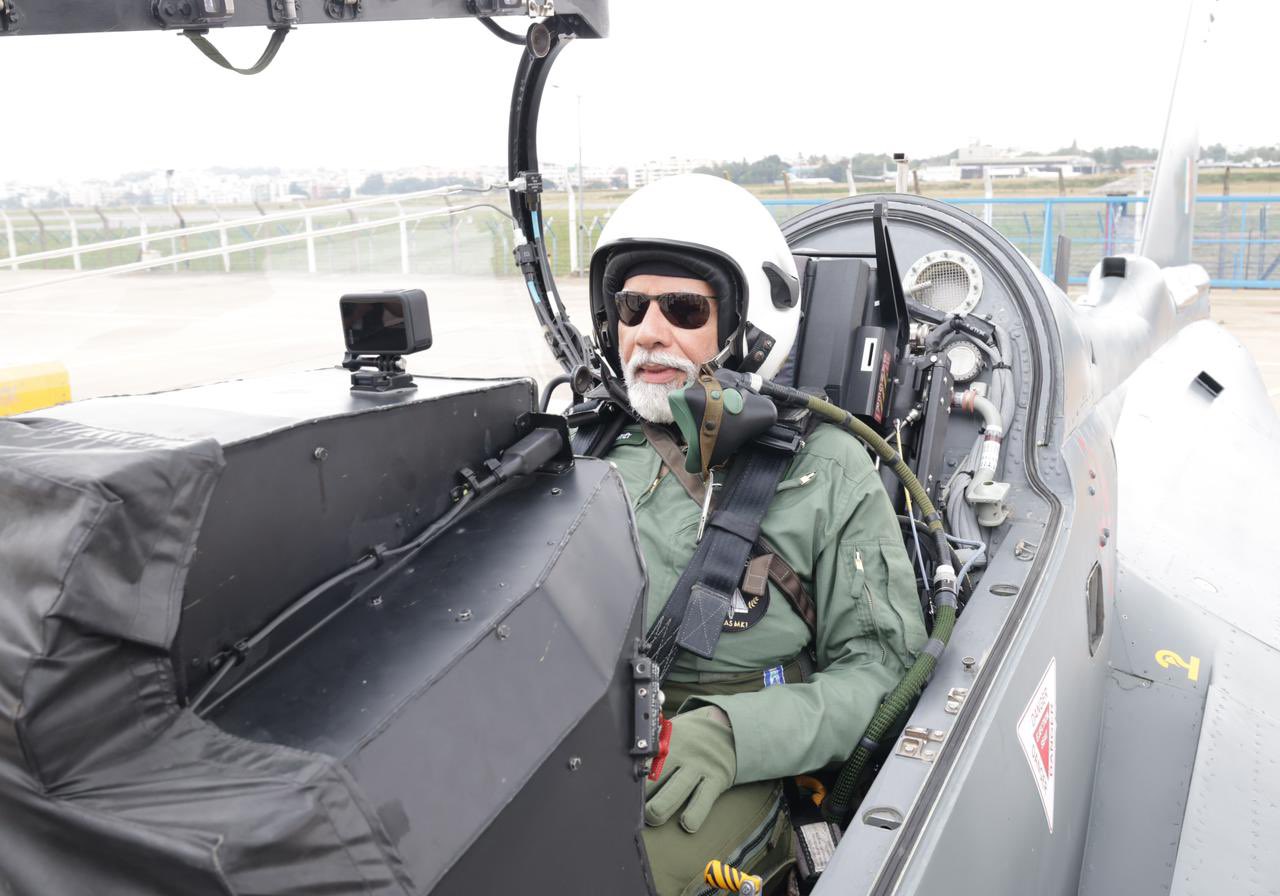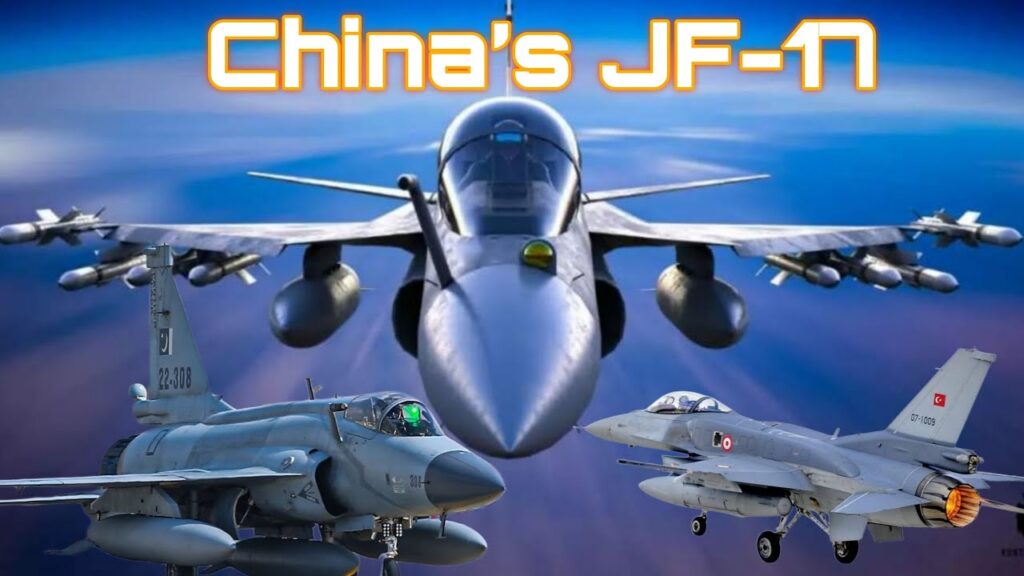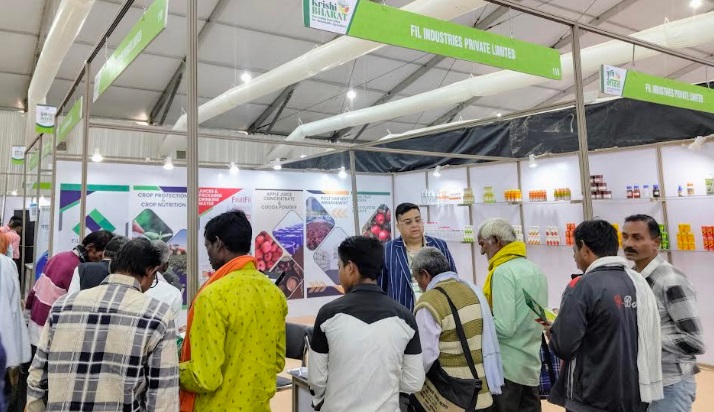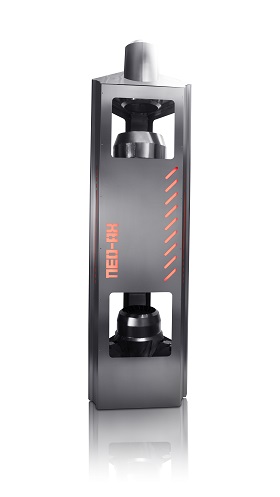India’s Minister of External Affairs, S. Jaishankar, was in Nigeria recently Tejas to put diplomatic force behind the Indian offer of the indigenous fighter jet as it faces stiff competition from the Chinese warplane.
China is pushing its JF-17 to counter India’s offer of Light Combat Aircraft (LCA) Tejas to the African country. India, looking to strike its maiden deal, is marketing the indigenous fighter jet aggressively.
An official privy to the development confirmed to the EurAsian Times that the topic was indeed addressed during the recently concluded visit of the Indian Foreign Minister to Nigeria.
“The JF-17s representatives are already there,” the official added.
Nigeria is looking to procure 15 fighter jets to replace its obsolete fleet of Chengdu F-7NI. The existing fleet of Chinese fighter jets gives an unsaid advantage to the Chinese offer. Both LCA ‘Tejas’ (Brilliance) and JF-17 ‘Thunder’ are single-engine multi-role combat aircraft.
India has been pushing for defense exports with an ambitious streak unknown earlier. Indian Finance Minister Nirmala Sitharaman said in December 2023 that the country’s defense exports would touch $2.88 billion (around Rs 24,000 crore) in the financial year 2024.
Indian Aerospace maker Hindustan Aeronautics Limited (HAL) Chairman CB Ananthkrishnan confirmed in December 2023 that negotiations were ongoing with Nigeria.
LCA’ Tejas’ has come a long way since its conception. The aircraft is becoming the backbone of the Indian Air Force (IAF), which has inducted the warplane in its inventory and will soon be deploying them on its forward bases on the western front with Pakistan.
Reports indicate that Tejas will soon be deployed in operational roles in the northern sector, where it would have to go one-on-one against Pakistan’s F-16s and China-Pakistan Joint Venture JF-17 should conflict happen between these countries.
India had deployed its full diplomatic force behind Tejas to sell it to Argentina. However, the discomfort over the possibility of a Chinese fighter jet in its backyard forced the US to offer second-hand F-16s to the South American country.
Even though the newly elected government has not made an official announcement, it is a foregone conclusion that the deal has been snatched by the US fighter jet.
The Indian representatives would not want to be outflanked by Chinese’ Thunder.’ The Nigerian Air Force, facing challenges from multiple fronts, including separatist movements, piracy, violence within communities, and the Islamist militant group Boko Haram, operates three JF-17s already. The JF-17s were inducted in 2021.
With only 150 aircraft and 15,000 troops, Nigeria’s air force is in desperate need of modernization. The majority of Nigeria’s air force inventory, according to the International Institute for Strategic Studies, is made up of antiquated or aged aircraft, including the Alpha Jet, F-7, and MiG-21.
Besides this, the Nigerian Air Force operates the Chinese Unmanned Aerial Vehicle Wing Loong II.
Advantages Tejas Has Over JF-17
The Indian side has been quick to underscore Tejas’s better serviceability over JF-17s. In the IAF squadron, the LCA has a serviceability of over 75 percent.
“Out of 100 aircraft delivered to date, at least 40 JF-17 aircraft are known to be unserviceable. The number of “incidents” in Pakistan & Myanmar show a dismal record. The LCA, on the other hand, has nil accident record and high serviceability,” an official affirmed in conversation with the EurAsian Times.
Another parameter that sets LCA one notch up the JF-17 is the fly-by-wire system. The JF-17 has a triplex redundant fly-by-wire system, and the LCA has a quadruplex redundant architecture.

The LCA Tejas, claims the Indian official, has a lighter dry, empty weight than JF-17 Thunder and can carry 1000 kg more payload. The LCA has a smaller fuselage, higher sweep angle, and large lift generation area, making it highly maneuverable and more agile when compared to JF-17 Thunder.
LCA’s better thrust-to-weight ratio gives it a better climb and turn performance. The JF-17 has seven hot points for carrying weapons, while the LCA has eight hot points.
“All weapons on the JF-17 are imported, making its export variant very expensive and reliant on third parties. The LCA comes with indigenous weapons,” the official added.
Honing Tejas Brilliance
The IAF has already begun sending the existing two LCA squadrons on detachments to forward air bases along the western and northern frontiers, as was witnessed recently with a squadron in Awantipur in Jammu and Kashmir for training.

Also Read:Google & Apollo’s Indian AI Health Initiative!
The biggest handicap the Tejas has so far has been that it is not combat-proven and has never faced a challenge, as its Indian peninsular deployment meant it is a peace-time combat jet.
But all that could change if Tejas is permanently deployed in one of India’s forward air bases facing west or north, and it would need to patrol the skies over India’s two volatile borders.
In the making since the 1980s, the LCA has now entered the services of the Indian Air Force (IAF) and will replace the aging fleet of the Soviet-vintage MiG-21s. The last unit of the MiG-21 is expected to phase out in 2025.
The order for these 90 aircraft will be in addition to the 83 LCA Mk1A that the force has already placed with the state-owned Hindustan Aeronautics Limited (HAL) in 2021. Once both orders are executed in the next 15 years, the IAF will have 40 LCA, over 180 LCA MK 1A, and at least 120 LCA MK-2 fighter jets.
Also Read: Google billing controversy: CCI refuses Indian internet companies temporary release!
This article was originally published on eurasiantimes.com!

















Reader Interactions